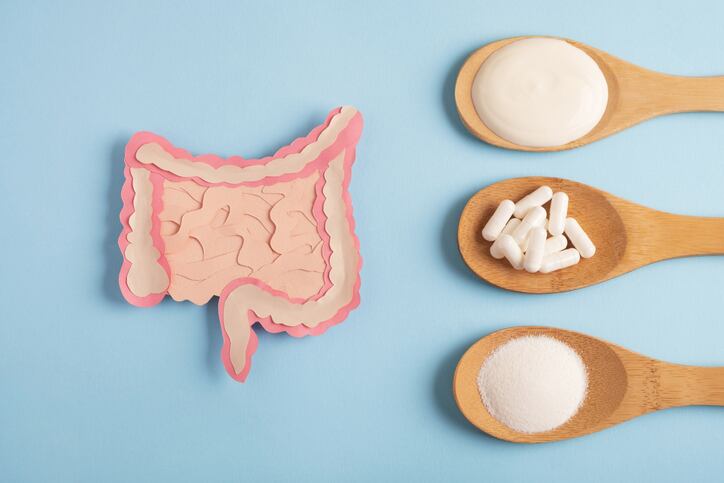Currently, probiotic beverages account for a mere 1.7%, or $15bn, of the total global beverage market, according to Grand View Research, despite growing consumer demand for probiotics and the gut and immunity claims they deliver, AnaBio Technologies CEO Aidan Fitzsimon told FoodNavigator-USA.
He explained because most probiotics are heat sensitive and typically grow in a liquid environment that can result in spoilage during storage and at ambient temperature, “they are pretty much confined to short shelf life refrigerated products” that hold less appeal to retailers and consumers compared to shelf-stable options that are easier to distribute, manage and take on-the-go.
“Convenience is a big trend. If you want a convenient beverage, you don’t want something you have to refrigerate. You want something that you can throw in your car when you are driving somewhere, that you can bring with you without having to worry if its gone off because you didn’t keep it at 4 degrees [Celsius]for the last couple of hours,” he said.
“That is where our technology comes in,” he added.
Broader applications, better benefits
AnaBio’s -EnCaptimus™ technology, which took the better part of a decade to develop, applies a protein coating around probiotics at a microscopic level that protect them from temperatures up to 140 Celsius for three to five seconds, which is typical of UHT or alternative heat treatment processes commonly used to create shelf stable beverages, Fitzsimon explained.
It also insulates them from moisture, preventing them from growing during storage even at ambient temperatures up to 12 months, he added.
“This means that you can add these encapsulated probiotics to your ingredient mix in a beverage line, you can treat them with whatever heat you require, right up to that UHT temperatures, and get very little loss of viability,” he said, adding the company successfully tested the technology in a wide range of beverages, including carbonated beverages, dairy drinks and kombuchas.
Fitzsimon explained AnaBio focused on creating a protein-encapsulation to ensure that the probiotics not only were protected while in the beverages, but also become available once consumed.
“The proteases that are present in our intestine breakdown that protein coat and they release the probiotic, which can then colonize and deliver its health benefits,” he said.
Beyond spore forming probiotics
Before the launch of AnaBio’s technology, beverage manufacturers that wanted to include a probiotic in a shelf-stable beverage could have used spore forming probiotics, but Fitzsimon says these are not as well-researched or dependable as more traditional – and sensitive – strains, including Lactobacilli and Bifidobacteria.
“Spore forming probiotics are not as well established in terms of clinical evidence to deliver real health benefits as the traditional Lactobacilli and Bifidobacteria, which have hundreds of clinical trials performed in humans demonstrating their health efficacy.
“And, in terms of spore formers’ stability in ambient situations, they have a limited success rate. Spore formers can definitely go through the heat treatment of shelf stable beverages, but what happens is when they sit in a beverage at ambient temperature, I know from experience, that they spore formers sometimes germinate and cause spoilage,” he said.
Finally, Fitzsimon said, spore forming probiotics do not colonize as reliably as traditional probiotics, which means to gain the promised health benefits, consumers must continually replenish their supply through additional doses.
Commercial supplies are available
The first batches of AnaBio’s encapsulated probiotics began shipping in recent months, and the company has an FDA accredited production line at the Micro encapsulation Centre of Excellence in Cork, Ireland, so that it can commercially produce a sufficient supply for a “a number of small but highly dynamic beverage brands around the world,” company co-founder Sinead Bleiel told FoodNavigator-USA.
She explained that in parallel to developing the encapsulation process, AnaBio worked with Eurofins to develop “a rapid efficient reliable Flow Cytometry based enumeration method for encapsulated probiotics conforming to ISO standards.”
Early feedback from the industry “has been phenomenal, and analysis suggests that the completely new shelf stable beverage market that can be created using this technology could be worth up to $50bn within three years,” she added.
Companies can tap into this market at a relatively low additional cost of about 2 cents per serving, which Fitzsimon said can easily be offset with premium pricing associated with the added health benefit claims and broader reach through mass distribution.
Looking forward, Fitzsimon is excited to apply this same encapsulation technology to other platforms, including gummies, which is possible now, and longer-term potentially cosmetics and skin care.

